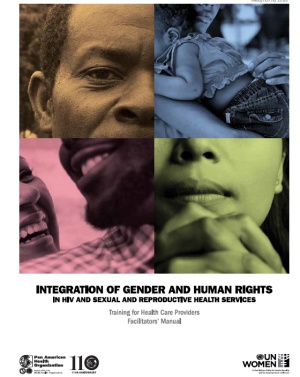This training tool builds on the public health values of equity, social justice, solidarity, community participation, and respect for diversity and self-determination. The training aims to build or strengthen the following competencies in health care workers:
- Demonstrate an understanding of basic gender concepts including gender power relations, gender roles, access to and control over resources, gender equity and equality, and gender as a social determinant of health.
- Ability to explain the effects of gender-based societal and cultural roles and beliefs on health and health care, in particular related to HIV and SRH.
- Ability to explain the importance of considering the needs of women, men, boys and girls in the provision of HIV and SRH services.
- Ability to explain the importance of considering sexual diversity and the needs of sexually diverse persons in the provision of HIV and SRH services.
- Ability to recognize personal values, beliefs, attitudes and prejudices related to sexuality, reproduction, HIV, sexual diversity and gender, and understand their potential impact on service delivery.
- Ability to critically assess services and programs through a gender and human rights lens and identify gender biases and human rights violations, and modify practices in line with an equity and human rights perspective.
- Ability to provide HIV and SRH services in a way that respects and protects every client’s rights and dignity.
- Ability to identify the occurrence and risk of gender-based violence, and work collaboratively with other actors to prevent and reduce gender-based violence (GBV), and assist persons who experience GBV.
These competencies are aligned with the essential attributes of integrated health service delivery networks that place the person, family and community at the center, are responsive to people’s health needs, promote and apply intersectoral action that addresses wider determinants of health. While the emphasis is on HIV services and programs, the training positions these services in a comprehensive continuum of integrated sexual and reproductive health services.

